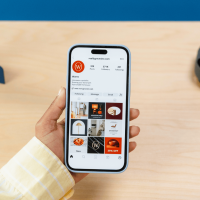Meta, the parent company of Facebook, Instagram, and WhatsApp, is currently embroiled in a high-stakes antitrust trial that could reshape the landscape of social media and technology. The trial, initiated by the Federal Trade Commission (FTC), questions whether Meta has maintained an illegal monopoly in the personal social networking market through its acquisitions and business practices.
Key Takeaways
- The trial is one of the largest antitrust cases against a tech company in recent years.
- The FTC aims to prove that Meta’s acquisitions of Instagram and WhatsApp were anti-competitive.
- Meta argues that the market definition proposed by the FTC is flawed and that competition has evolved with the rise of platforms like TikTok.
Background of the Case
The antitrust case against Meta was filed in December 2020, alleging that the company engaged in anti-competitive practices to maintain its monopoly in social networking. The FTC claims that Meta’s acquisitions of Instagram in 2012 and WhatsApp in 2014 were strategic moves to eliminate competition and prevent these platforms from growing independently.
Initially, a judge dismissed the case due to insufficient evidence. However, after a change in leadership at the FTC, the case was refiled with additional data and arguments supporting the existence of a personal social networking market dominated by Meta.
The Government’s Argument
The FTC’s case hinges on the assertion that Meta has created a monopoly by acquiring potential competitors and stifling innovation. Key points include:
- Market Definition: The FTC defines the market as personal social networking, which includes Facebook, Instagram, WhatsApp, Snapchat, and a lesser-known app called MIUI.
- Evidence of Anti-Competitive Behavior: The government has presented internal communications from Meta executives discussing strategies to neutralize competition.
- Potential Remedies: The FTC is seeking remedies that could force Meta to divest Instagram and WhatsApp, fundamentally altering the company’s structure.
Meta’s Defense
In response, Meta has argued that:
- Flawed Market Definition: The company contends that the FTC’s definition of the market is overly narrow and does not account for the broader competitive landscape, particularly the rise of TikTok.
- Evolving Competition: Meta claims that competition has shifted significantly, with TikTok emerging as a major player that has changed user engagement dynamics.
- Historical Context: Mark Zuckerberg has testified that the company has adapted to market changes and that the FTC’s case is based on outdated perceptions of competition.
Implications of the Trial
The outcome of this trial could have far-reaching implications for Meta and the tech industry as a whole. If the FTC succeeds, it could set a precedent for future antitrust actions against other tech giants, potentially leading to:
- Increased Scrutiny: Other companies may face heightened scrutiny regarding their acquisitions and market practices.
- Market Dynamics: A ruling against Meta could encourage more competition in the social networking space, benefiting consumers.
- Regulatory Changes: The trial may prompt lawmakers to reconsider existing antitrust laws and their applicability to modern technology companies.
Conclusion
As the trial unfolds, the tech world watches closely. The case not only questions Meta’s business practices but also reflects broader concerns about monopolistic behavior in the tech industry. The verdict could redefine the competitive landscape of social media and influence regulatory approaches to technology companies in the future.
Sources

Founder Dinis Guarda
IntelligentHQ Your New Business Network.
IntelligentHQ is a Business network and an expert source for finance, capital markets and intelligence for thousands of global business professionals, startups, and companies.
We exist at the point of intersection between technology, social media, finance and innovation.
IntelligentHQ leverages innovation and scale of social digital technology, analytics, news, and distribution to create an unparalleled, full digital medium and social business networks spectrum.
IntelligentHQ is working hard, to become a trusted, and indispensable source of business news and analytics, within financial services and its associated supply chains and ecosystems










